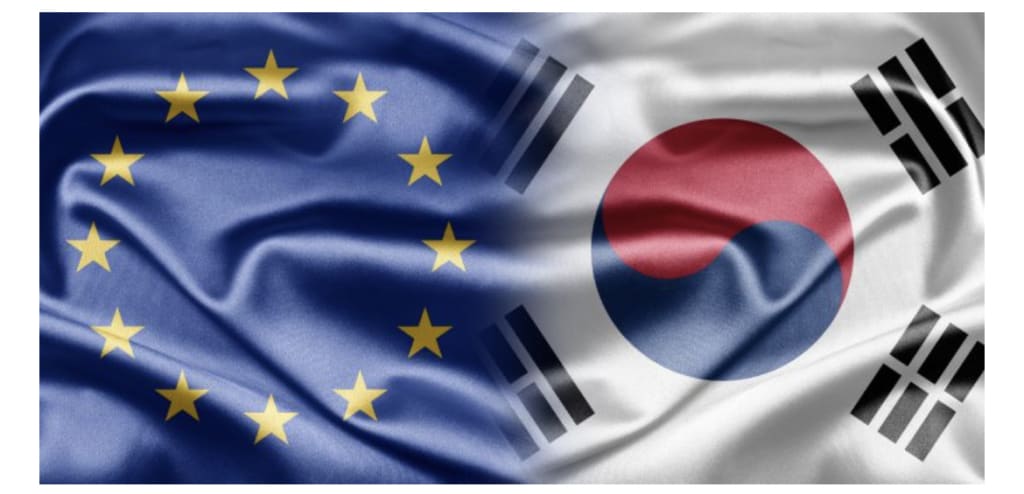Fostering EU-Korean Green Partnership through Green Diplomacy and Advocacy
Energy Transition

Introduction
The international community is increasingly recognising the critical importance of combating climate change and transitioning to a more sustainable future. The European Green Deal has evolved in this environment as a revolutionary policy framework aimed at achieving climate neutrality and sustainable development throughout the European Union. As the EU sets the standard for green policy, Korea has a unique chance to create a robust EU-Korean Green Partnership. Both areas may work together to tackle climate change and promote sustainable development by harnessing green diplomacy and campaigning.
The European Green Deal: An Overview
The European Green Deal is a bold and comprehensive blueprint outlining the EU's goal of becoming the world's first climate-neutral continent by 2050. It includes a wide range of policy initiatives and actions spanning many sectors, including energy, transportation, agriculture, and industry. The EU hopes to promote a sustainable and inclusive economy that benefits both people and the environment by taking this comprehensive approach.
Opportunities for South Korea:
Korea stands to gain greatly by aligning its environmental ambitions with the European Green Deal. By establishing an EU-Korean Green Partnership, Korea will be able to draw into the EU's experience and resources, allowing the country to expedite its own green transition. Here are some important areas where the European Green Deal can assist Korea in developing a strong green agenda:
- Green Technology Transfer:
The European Union is well-known for its cutting-edge green technologies and renewable energy solutions. Korea can gain access to cutting-edge technologies and experience in sectors such as renewable energy generation, energy storage, and energy efficiency by partnering with the EU. This collaboration has the potential to speed up the transmission of green technologies, allowing Korea to lower its carbon footprint, increase energy security, and create new economic opportunities.
2. Sustainable Urban Development:
South Korea, being one of the world's most urbanised countries, presents considerable issues in terms of sustainable urban growth. The European Green Deal prioritises the development of sustainable, smart, and habitable cities. Korea may benefit from European experiences in urban planning, sustainable mobility, and green infrastructure by collaborating with the EU. This exchange of knowledge has the potential to make Korean cities more resilient, environmentally friendly, and attractive places to live.
3. Circular Economy:
The European Green Deal promotes the transition to a circular economy, with the goal of reducing waste output, increasing resource efficiency, and encouraging recycling and reuse. Korea has already begun to embrace the circular economy model, and the EU-Korean relationship has the potential to accelerate this change. Sharing best practises, promoting eco-design, and encouraging collaboration across European and Korean enterprises can open up new economic prospects while minimising environmental effect.
4. Climate Finance and Investments:
The EU has committed substantial financial resources to assisting in the implementation of the European Green Deal. Korea can benefit from EU climate funding tools such as the Just Transition Fund and the Innovation Fund, which aim to accelerate the transition to a low-carbon economy and stimulate long-term investment. Korea can attract green investments, construct sustainable infrastructure, and drive economic growth by participating in collaborative initiatives and using EU financial options.
5. Green Diplomacy and Advocacy:
Green diplomacy and lobbying are critical to the EU-Korean Green Partnership's success. Diplomatic channels can be used to strengthen cooperation, share knowledge, and create policy frameworks. It is possible to establish regular high-level conversations and collaborative working groups to examine common environmental concerns and discover potential for collaboration.
Furthermore, lobbying activities to enhance public awareness about the necessity of sustainability and climate action should be stepped up. The EU and Korea may work together to organise joint events, share success stories, and promote sustainable practises across multiple industries. This collaborative endeavour has the potential to develop an environmental stewardship culture and inspire individuals, corporations, and governments to embrace sustainability.
6. EU Offshore wind expertise to accelerate Korean's energy transition:
The EU's offshore wind expertise represents a big potential for Korea to expedite its plans to build 12 GW of offshore wind capacity by 2030. The European Union has emerged as a global leader in offshore wind energy, having extensive experience in offshore wind farm planning, construction, and operation.
By enacting favourable laws, building regulatory frameworks, and offering financial incentives, Europe has successfully capitalised on its offshore wind potential. Korea may benefit from the EU's experience in offshore wind technology, project management, and grid interconnection as it embarks on its ambitious offshore wind adventure.
South Korea may benefit from the knowledge and skills of European countries that have pioneered offshore wind projects through the EU-Korean Green Partnership. Technology transfer, joint research, and the creation of best practises for offshore wind farm design, installation, and maintenance can all be facilitated by collaboration between European and Korean enterprises.
Furthermore, the EU may advise on the development of supportive legislative and regulatory frameworks that handle potential issues such as permission processes, environmental impact assessments, and grid connectivity. Korea can accelerate the deployment of offshore wind farms, decrease costs, and assure the long-term development of the offshore wind sector by leveraging EU knowledge.
The EU-Korean Green Partnership may also pave the way for offshore wind investment and collaborative enterprises. European firms with a track record of success in the offshore wind business can contribute their experience and financial resources to the development of Korean offshore wind projects. This collaboration can help Korea not only meet its renewable energy targets, but also create jobs and boost economic growth in the green energy industry.
Korea can accelerate the development of its anticipated 12 GW capacity by 2030 by using specialised EU knowledge in offshore wind. The EU's offshore wind energy experience and success give vital lessons and best practises that can help Korea overcome technological, legislative, and logistical problems. This collaboration has the potential to expand the EU-Korean Green Partnership, promote knowledge transfer, and help to both regions' transition to a more sustainable and renewable energy future.
Conclusion:
The European Green Deal offers Korea a once-in-a-lifetime opportunity to reinforce its commitment to sustainability and create a strong EU-Korean Green Partnership. Both regions may work together to combat climate change, promote sustainable development, and share knowledge and resources through utilising green diplomacy and activism. The EU's expertise in green technologies, sustainable urban development, the circular economy, and climate finance may help Korea's green transition greatly. By collaborating, the EU and Korea can pave the path for a greener, more sustainable future for all!
About the Creator
Erik Roelans
I am founder and CEO of ER-MARINE and write about the green energy transition, renewable energy challenges, climate change, offshore wind permitting, policy dialogue, marine biodiversity, renewables and floating offshore wind development.






Comments
There are no comments for this story
Be the first to respond and start the conversation.